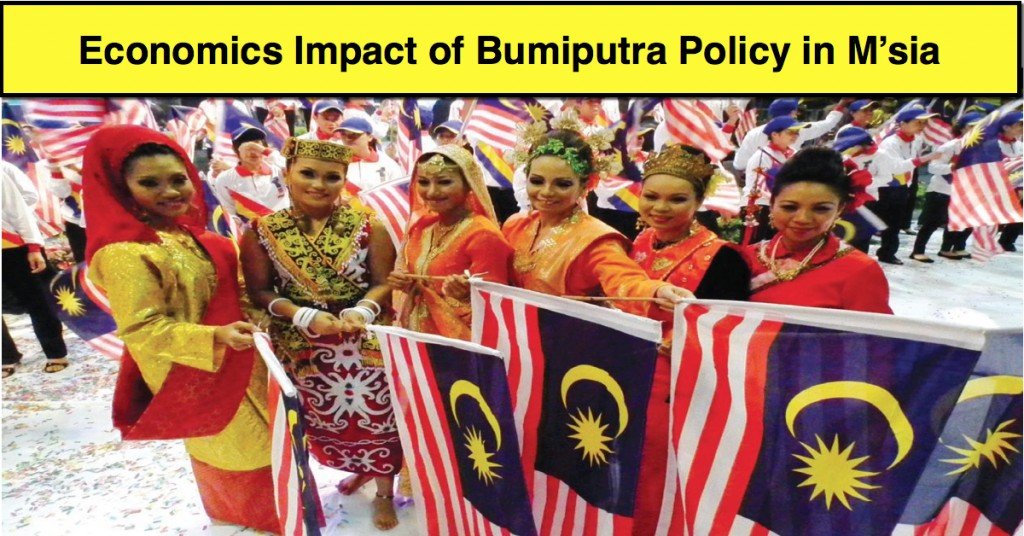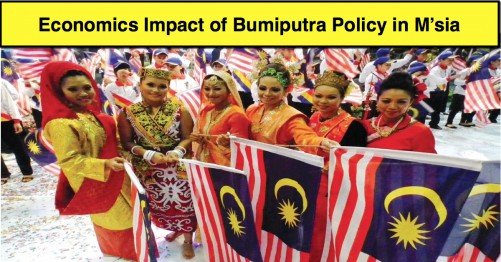Do you know that the Bumiputra policy adopted by Malaysia has costed the Society and the Economy dearly to such an extent that Malaysia is deemed as a wasted opportunity?
With a huge population of approximately 30 million and ample raw materials like crude oil and palm oil, why is Malaysia still significantly lagging behind its neigbour country Singapore in terms of living standards?
Bumiputra policy, in short, favours ethnic Malays and other indigenes at the expense of Malaysia’s ethnic Chinese and Indian citizens are an oddity in the realm of state discrimination.
For example, civil service jobs & entrance to university are largely allocated to ethnic Malays in block quotas instead of leaving it to the free competitive market to decide which candidate is suitable for the job / university placement.
” Chinese and Indian students flock instead to private and foreign ones. Those who leave often stay away. A World Bank study in 2011 found that about 1m Malaysians had by that stage left the country, which has a total population of 29m. Most were ethnic Chinese, and many were highly educated. Some 60% of skilled emigrants cited “social injustice” as an important reason for leaving Malaysia. This exodus makes it a less attractive place to invest in ”
– https://www.economist.com/…/21576654-elections-may-could-mar…
A recent holiday visit to Kuala Lumpar and Langkawi has further illustrated the above discrimination problem, which leads to brain drain issue.
Throughout my visit, the people that I have met : hotel front desk staff, taxi drivers are all ethnic Malays. Many of the taxi drivers and even some hotel front desk staffs struggle to speak in proper English. Service was poor and rampant haggling occurred. The education and job market is deemed to be severely lagging behind many other OECD countries.
Also, the Chinese Malaysian friends that I have met further affirmed the idea. Many are in the midst of looking to relocate to Singapore or other countries. To my Chinese Malaysian friends, they are utterly frustrated by the discrimination policies which cost them ample career progression opportunities.
In contrary, the neighbour island Singapore was not too different back then when we were “kicked out” of Federation of Malaya. Back then, our main exports were still simple commodities like tin and rubber!
However, it is the right policy choice of meritocracy instead of bumiputra policy we have chosen that largely differentiates ourselves from Malaysia now in terms of living standards. Students and job seekers are more effectively allocated in the education and job market by results and merits instead of race.
Morale of the story: lets all appreciate and give thanks to relatively good governance in Singapore.
In my regular classes, I will be using interesting examples like these to illustrate topics like Globalization. If you have problem understanding what’s taught in school, find out more about my classes now!
[aio_button align=”center” animation=”none” color=”blue” size=”small” icon=”search” text=”JC Group Schedule & Rates” relationship=”dofollow” url=”https://aceyourecons.sg/group-schedule/”]
[aio_button align=”center” animation=”none” color=”red” size=”small” icon=”search” text=”Poly Econs & Rates” relationship=”dofollow” url=”https://aceyourecons.sg/poly-economics/”]
[aio_button align=”center” animation=”none” color=”orange” size=”small” icon=”search” text=”Back to Home” relationship=”dofollow” url=”https://aceyourecons.sg/”]


